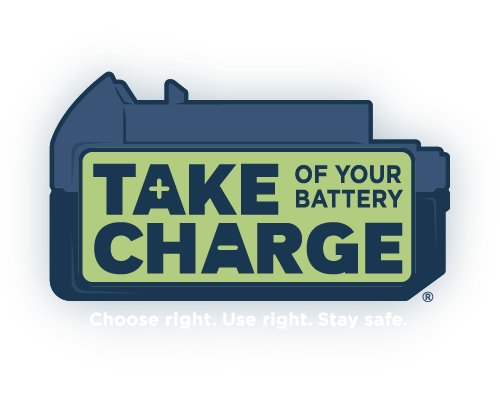Why you should recycle your lithium-ion batteries instead of tossing them in the trash
Lithium-ion batteries have revolutionized power tools and other devices, providing long-lasting, reliable power that is lighter weight, charges quickly, and holds its charge longer. But, like all batteries, eventually even lithium-ion batteries reach the end of their service life.
When this happens, the easy impulse might be to toss it in the trash. DON’T. These batteries must be disposed of properly by a qualified recycler.
Why not put them in the trash? Let’s start with the personal risk to you. Lithium is highly reactive and difficult to control. High temperatures or short circuits can lead to exothermic reaction, causing the battery to catch fire rapidly (this is why airlines don’t allow spare lithium-ion batteries in checked bags).
Think about where your trash can is. Do you want a fire to start there? What kind of property damage might it do to your home … or your neighbor’s? Worse, what if someone is trapped inside the house when the fire starts?
Also consider the environmental impact. Because that threat of fire doesn’t stop once the trash leaves your home. Lithium-ion batteries can cause landfill fires that can smolder for years. The resulting toxic fumes pollute the air in your community—and contribute to global warming.
Luckily, these scenarios are easily avoided by properly following guidelines for battery recycling and disposal.
Federal law even requires lithium-ion batteries (and others) to be recycled, not thrown away. Violation carries heavy fines. In addition, 29 states have their own battery recycling laws. (To see how your state handles battery disposal, visit https://www.call2recycle.org/recycling-laws-by-state/.) Keep in mind that states without their own laws are still governed by the federal recycling law.
Recycling your lithium-ion battery isn’t as hard as you might think. Most big-box hardware retailers have recycling bins specially designated for lithium-ion batteries. You probably have one of these stores not far from your home. The bins are often positioned right by the entrance for maximum convenience. Simply place the battery in the bin, and the recycler does the rest. (Remember, do NOT place batteries in a recycling bin not designated for lithium-ion batteries). For other recycling options, you can call your local solid waste district to find out if your community has a collection program.
If those options aren’t convenient enough for you … that still doesn’t give you permission to throw your old batteries in the trash. Instead, get involved! Contact your local government about starting a collection program. Ask your solid waste management district about adding a battery collection service. Get in touch with your state representative about instituting a statewide program. But DON’T throw your lithium-ion battery in the trash!



